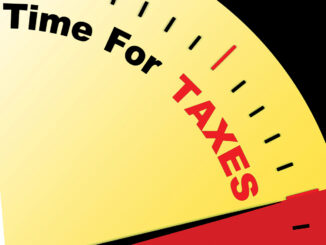
As the end of the year approaches, many individuals find themselves facing the annual rite of passage: filing income taxes. While the mere thought of diving into the intricate world of tax forms may induce stress and confusion, being well-prepared can alleviate the anxiety and ensure a smoother tax-filing experience. Here’s a comprehensive guide to help you navigate the maze of tax preparation.
First, gather all necessary documents required for filing taxes. These include W-2s, 1099s, receipts for deductible expenses, mortgage interest statements, investment income records and any other relevant financial documents. Organizing these documents beforehand can save time and prevent overlooking essential information.
Tax laws undergo regular updates and revisions. Stay informed about any changes in tax regulations that might impact your filing. Changes to deductions, credits, and income brackets could influence your tax liability, so keeping abreast of these alterations is crucial for accurate filing.
One of the most effective ways to reduce your tax burden is by maximizing deductions and credits. Deductions such as charitable contributions, medical expenses, education expenses and retirement contributions can significantly lower your taxable income. Moreover, tax credits like the Earned Income Tax Credit (EITC) or Child Tax Credit can directly reduce the amount of tax owed.
Navigating the complexities of the tax code can be daunting. Consider seeking assistance from a tax professional like the great folks at Professional Tax Service to ensure accuracy and optimize your deductions. The experts at Professional Tax have the expertise to navigate intricate tax scenarios and can potentially uncover deductions or credits you might have overlooked.
Before submitting your tax return, carefully review all information entered. Mistakes or omissions can lead to delays or potential audits. Double-check figures, ensure accurate personal information, and verify bank account details if expecting a refund through direct deposit.
Tax filing season is an excellent time to strategize for the upcoming year. Evaluate your financial situation, adjust withholding allowances if necessary, and consider making contributions to retirement accounts or health savings plans to optimize tax benefits for the following year.
Remember, the deadline for filing income taxes is typically April 15th in the United States. Failing to file on time can result in penalties and interest on unpaid taxes. If you need more time to prepare, consider filing for an extension, which grants an additional six months to submit your return. However, it’s essential to note that an extension only extends the filing deadline, not the payment deadline if taxes are owed.
In conclusion, preparing for income tax filing requires diligence, organization, and awareness of relevant tax laws. By gathering necessary documents, staying informed, exploring deductions and credits, considering professional assistance, reviewing diligently, planning for the future, and meeting deadlines, individuals can navigate the tax-filing process more smoothly and potentially maximize their refunds or minimize liabilities. Remember, proactive preparation is key to a stress-free tax season.
-submitted


